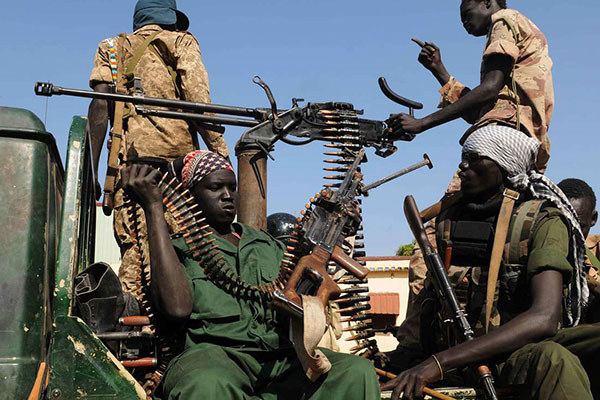UN now enforces arms embargo on South Sudan

The United Nations Security Council has finally imposed an arms embargo on South Sudan to stop the five-year-old civil war.
This comes as the signing of the final peace deal in Khartoum is set for July 26, but only if the two outstanding issues the number of states South Sudan should have and the size of the transitional government are resolved.
Already, President Salva Kiir’s regime has started lobbying neighbouring countries to ignore the arms embargo, saying it is driven by the United States’ campaign against it.
Uganda, Kenya, Sudan and Ethiopia are central to the successful implementation of the embargo because the four countries are either the source or offer passage to arms destined to South Sudan.
The embargo imposed on July 12, requires all UN Member States to prevent the entry of arms and equipment of all types, including weapons and ammunition, military vehicles and equipment, paramilitary equipment and other spare parts, in South Sudan.
“All Member States, especially the neighbours shall immediately take the necessary measures to prevent the direct or indirect supply, sale or transfer to the territory of South Sudan from or through their territories or by their nationals, or using their flag vessels or aircraft, of a and related materiel of all type,” read the resolution.
Already, Ethiopia has opposed the embargo when its Permanent Representative to the UN Tekeda Alemu, argued that South Sudan talks is at a critical stage that an embargo will have serious implication on the peace process.
South Sudan ambassador to the African Union (AU) James Morgan maintained that the arms embargo is a US agenda and not of the UN.
“The US has been pursuing the arms embargo for a long time but those in the Security Council were reluctant because it was not the UN. Unless we now say that the US is synonymous with the UN,” said Mr Morgan.
Several attempts by the US to push for a resolution for arms embargo at the Security Council have failed in the past two years because of veto from Russia and China.